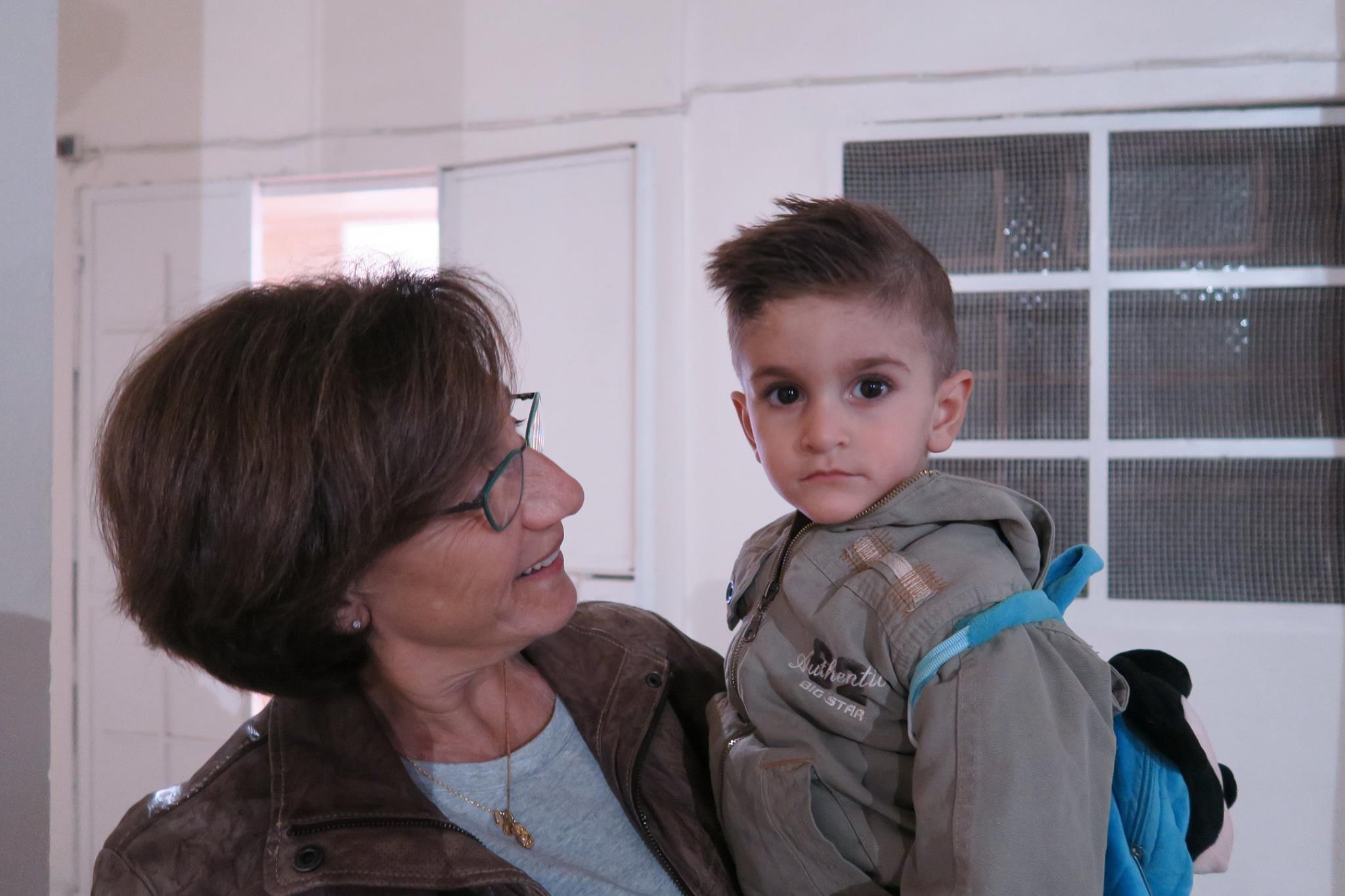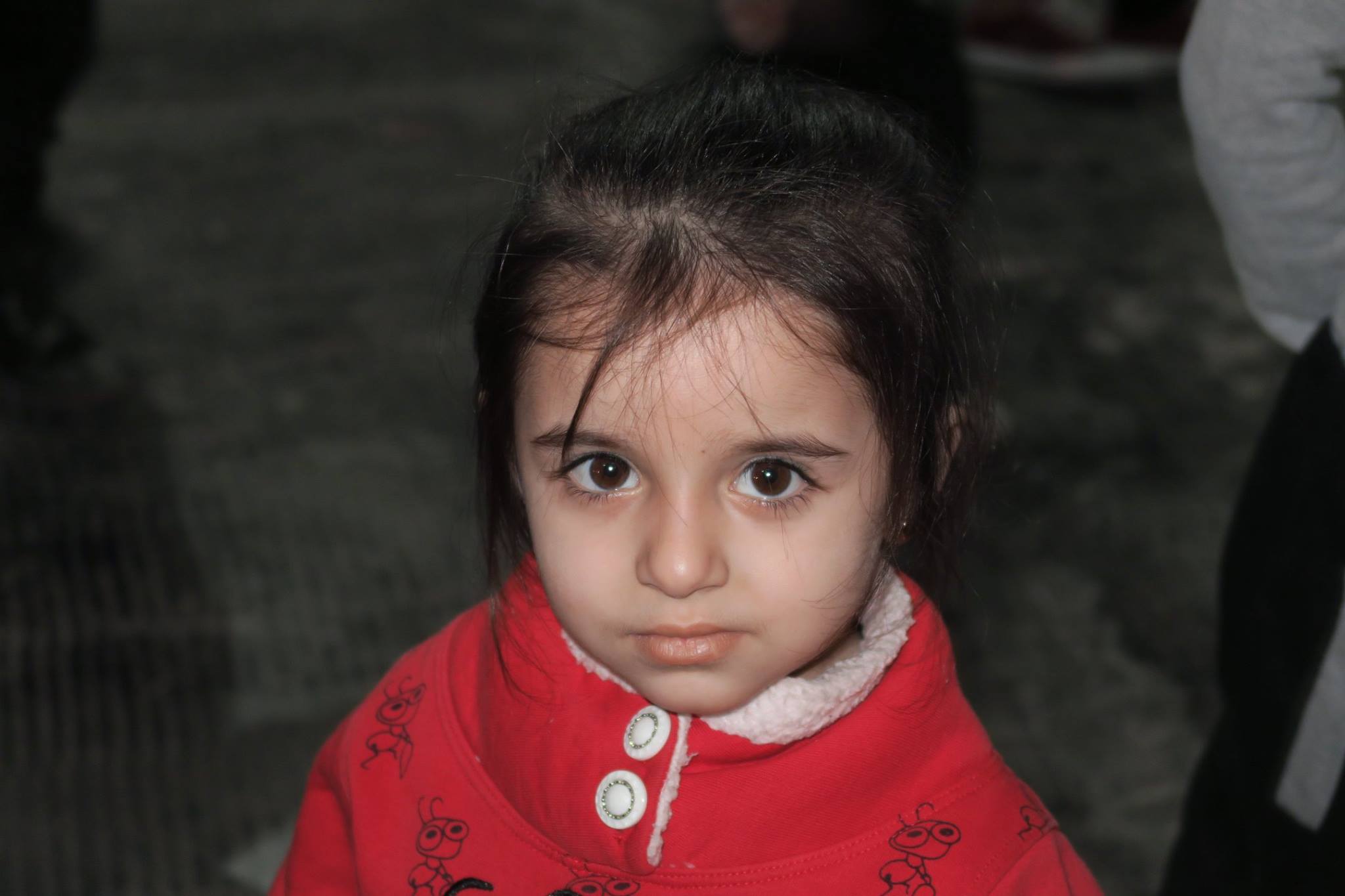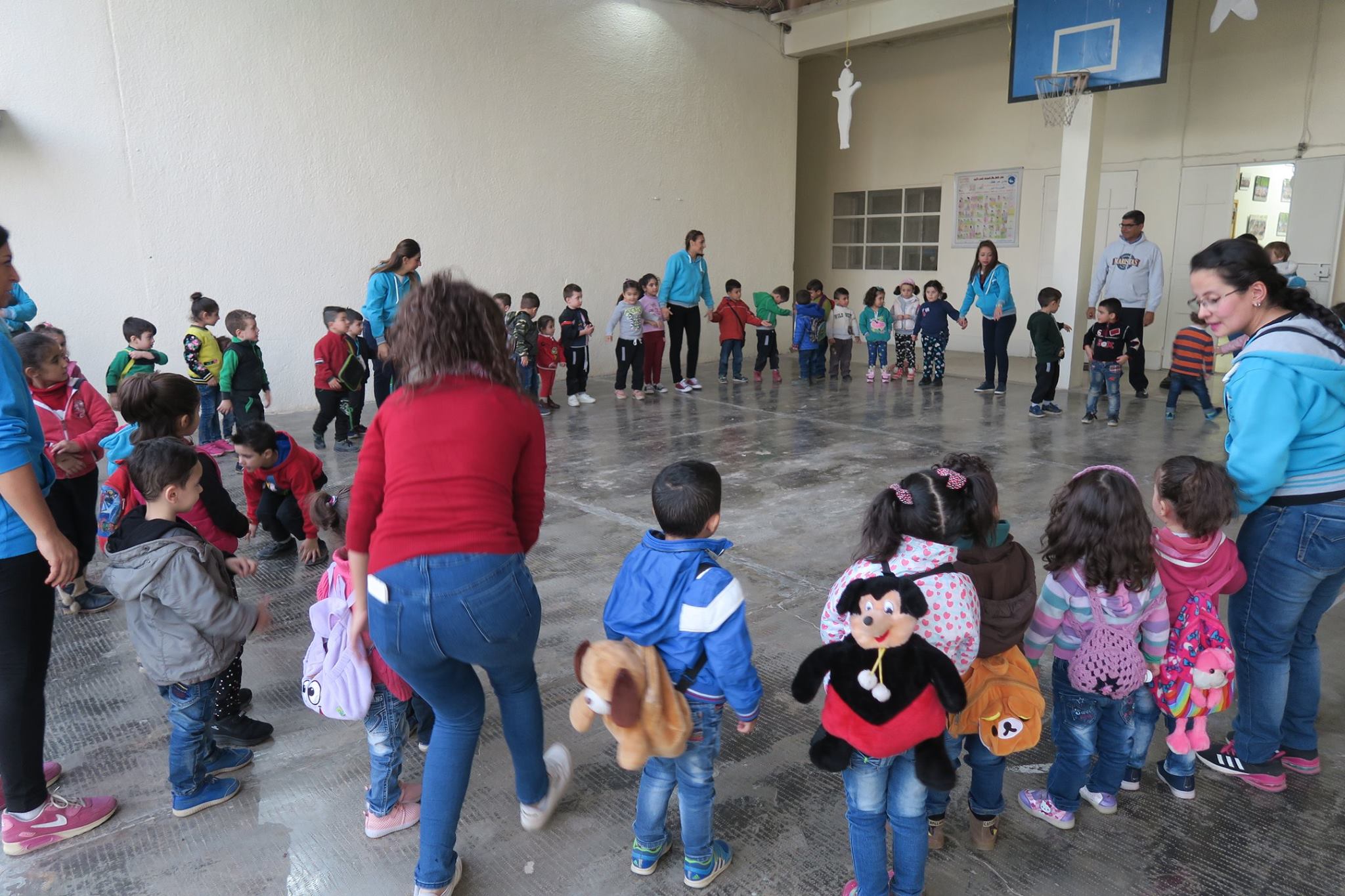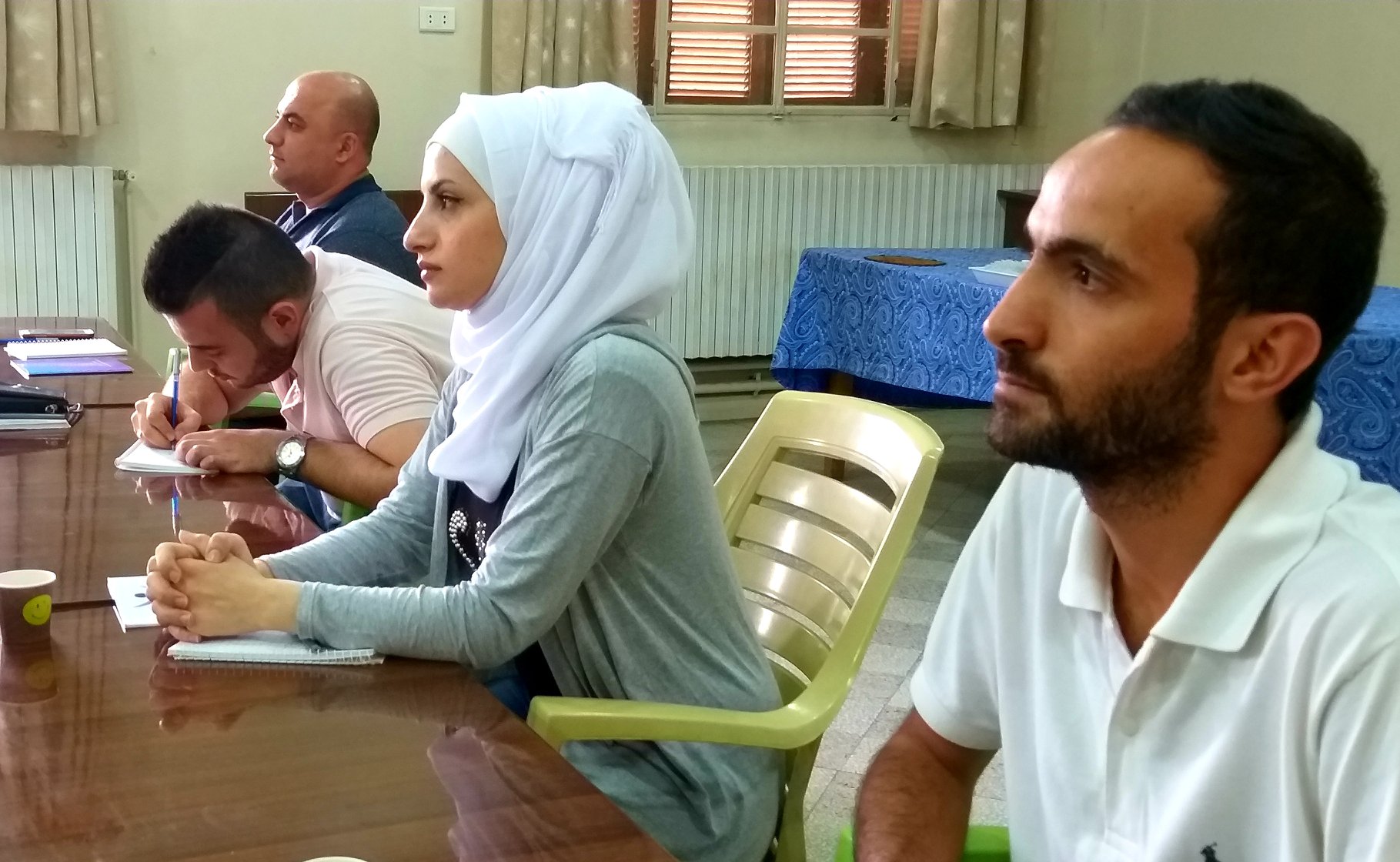
Persevere
In the past few weeks, we have seen the return of some friends who had left the country during the war. They were often on their own.To see the blinds up in their houses or meet them on the street gives us fresh hope; a long-awaited hope for their return since this points to the end of the war, an end to the nightmare of emigration, and especially life getting back to normal.
We took them on a tour of the city. We have become tourist guides of the destroyed souk and neighbourhoods devastated by hatred. We had to explain the suffering endured by those who had to stay. Many expressed their astonishment at the will to live of the survivors. And to our question "do you intend on staying?", their negative or disguised answers brought us back to the bitter reality of emigration.
How to heal the wounds of war?
It is true that December 2016 saw the end of the division of the city into two parts. It is true that, since then, reconstruction has become a priority for both the government and the general population. It is true that some families who had fled the eastern part of the city and whose homes are more or less habitable, have returned home. It is true that water and electricity services have improved.
But what is essential still needs attention: the human person. The ones who took a direct part in war and the ones who suffered it. What’s happening inside such people, how do they feel right now? Have they come through it okay? How do you go about healing the wounds of war? How move towards reconciliation? How react to the violence, barely contained, of some people? What sort of education is appropriate for children who have lived in a warzone? What advice to give to young people of an age when they have to make decisions about their future? How support couples and households to remain together? And above all how to reignite the flame of hope?

Desire for peace
There is also a desire for the whole country to be at peace with no more pockets of war such as Idlib province and the campaign to the west of Aleppo and in North-Eastern Syria.
Also, hundreds of thousands of families continue to live under tents in refugee camps within the country or in neighboring countries.
However, the West must decide to lift the sanctions that are penalising the population. Following his recent visit to Damascus, the special rapporteur on the negative effects of one-sided, coercive measures on the exercise of human rights, said, "I am deeply concerned that unilateral coercive measures help to aggravate the suffering of the Syrian people. Given the economic and human suffering caused by these measures, it is difficult to believe that they exist to protect Syrians or to encourage democratic transition.”
The exodus of families has not stopped
In fact, the flow of families or people who want to leave or have actually left the country has not stopped.
In September 2018, the Vatican dicastery for Integral Human Development published a report :"The response of Catholic institutions to the Humanitarian Crisis in Iraq and Syria 2017-2018".
Here are some extracts:
"In Syria, more than 13 million people need assistance: there are 6,6 million internally displaced persons and 5,6 million refugees registered in neighboring countries, mainly in Turkey, Lebanon and Jordan. (…) Education, health and psychosocial support remain priority areas of intervention, but the major challenge now lies in the response to an ever-increasing need for stability for the future of families through agricultural development programmes, improving the economic and social fabric, vocational training and the creation of job opportunities ".

Blue Marists
We Blue Marists, without waiting for these recommendations, have been undertaking education, human development and job creation programmes over recent years. September this year was devoted to training the teachers of our two educational programmes "I want to learn" and "Learning to grow". Soumayya Hallak, a Swiss national of Syrian origin, trained them in post traumatic therapy using body approaches and music. Bahjat Azrieh, a psychologist, worked with them on "life skills". Finally, Veronica Hurtubia of the Catholic University of Milan and in collaboration with the International Catholic Office for Children(BICE), led a first phase of training in resilience.
The 90 children of the "I want to learn" programme started their year in early October 2018. The 55 children of "Learning to grow" joined them towards the end of October. In every month of the summer, their teachers came up with new programmes adapted to the situations of our children.
A new team has come to strengthen our psycho-educational work. These are "SEEDS", five people to work with the different age groups: from preschool to young adolescents to adults.
The Women's development programme brings together some women around several weekly courses on important topics such as health, psychology, cooking …
“Heartmade”, our fabric and clothing recycling project, has progressed in leaps and bounds with the slogan: "Avoid waste, learn perfection to reach beauty". We have increased the number of women in this workshop to increase production. The Facebook page of the project gives an idea of their unique creations.
"Cutting and Sewing" provides the 16 women who have signed on for the fifth session with training in this area. In addition to the programme itself, courses on human and personal development are provided.
"How to create your own micro-project" is one of the objectives of MIT. We believe that as we move into the post-war stage we need to launch micro-projects that allow people, especially youth, to live with dignity and build a life for themselves in the country. In groups of 24, young people and those not so young, attend courses, get training, design their own project and present it to a jury for a thorough study. We offer those who qualify a generous donation to launch their project. They are accompanied by a mentor who helps them achieve their purpose and ensure continuity. So far, we have financed 70 such micro-projects.
The Medical program continues. It is a great service for sick people. We Blue Marists, along with other charities, help the sick to get treatment or surgery, or buy the medicines they need.
“A drop of milk” remains a very successful project. Around three thousand children under the age of 11 are recipients each month. The parents are very grateful.
Volunteers in Al Shahba
Every Wednesday and Sunday, about 25 of our volunteers head to "Al Shahba" , a camp for the displaced, located some 25 km from Aleppo. Here 120 families are housed in tents. Our presence and activities with all without distinction have led to better living conditions. The smaller ones have a time of physical exercise and play. Children of school age learn to read and write. Young adolescents are accompanied by a group of volunteers who help them reflect on topics touching their lives and their circumstances as displaced people. Finally, women are trained by a really good team. Sometimes doctors or people with one or other specialisations join us in providing quality training. Distributions of food, clothing, blankets and medicines go some way to addressing their enormous needs.
Peace and reconciliation
Christmas is on the horizon! It brings with it the hope of peace and reconciliation. For our city of Aleppo, for our country Syria, for our people, we hope that Christmas will be a time of coming together and not saying goodbye.
We are working for a civilization of love and peace to reign on our earth and in all hearts.
______________
Brother Georges Sabe, for the Blue Marists
Aleppo, 4 November 2018

